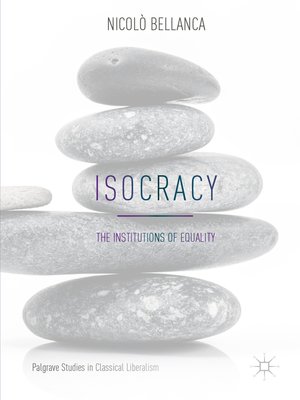Isocracy
ebook ∣ The Institutions of Equality · Palgrave Studies in Classical Liberalism
By Nicolò Bellanca

Sign up to save your library
With an OverDrive account, you can save your favorite libraries for at-a-glance information about availability. Find out more about OverDrive accounts.
Find this title in Libby, the library reading app by OverDrive.



Search for a digital library with this title
Title found at these libraries:
| Loading... |
In the twentieth century there were two great political and social paradigms, the liberal-democratic and the libertarian (in its various socialist, anarchist, and communist delineations). The central idea of the first approach is isonomy: the exclusion of any discrimination on the basis that legal rights are afforded equally to all people. The central idea of the second approach is rather to acknowledge and address a broader spectrum of known inequalities. Such an approach, Bellanca argues, allows the pursuit of pluralism as well as a more realistic and complex view of what equality is. Here he analyzes the main economic and political institutions of an isocratic society, and in so doing, effectively outlines how a utopian society can be structurally and anthropologically realized.
This book is ideal reading for an audience interested in the critique of contemporary capitalism through a renewed perspective of democratic socialism and leftist libertarianism.
Nicolò Bellanca is Associate Professor of Development Economics at the University of Florence, Italy. He is the author of a broad array of scholarly articles, books and textbooks about both the history of economic thought and development economics. His current research focuses on the theory of institutional change.






